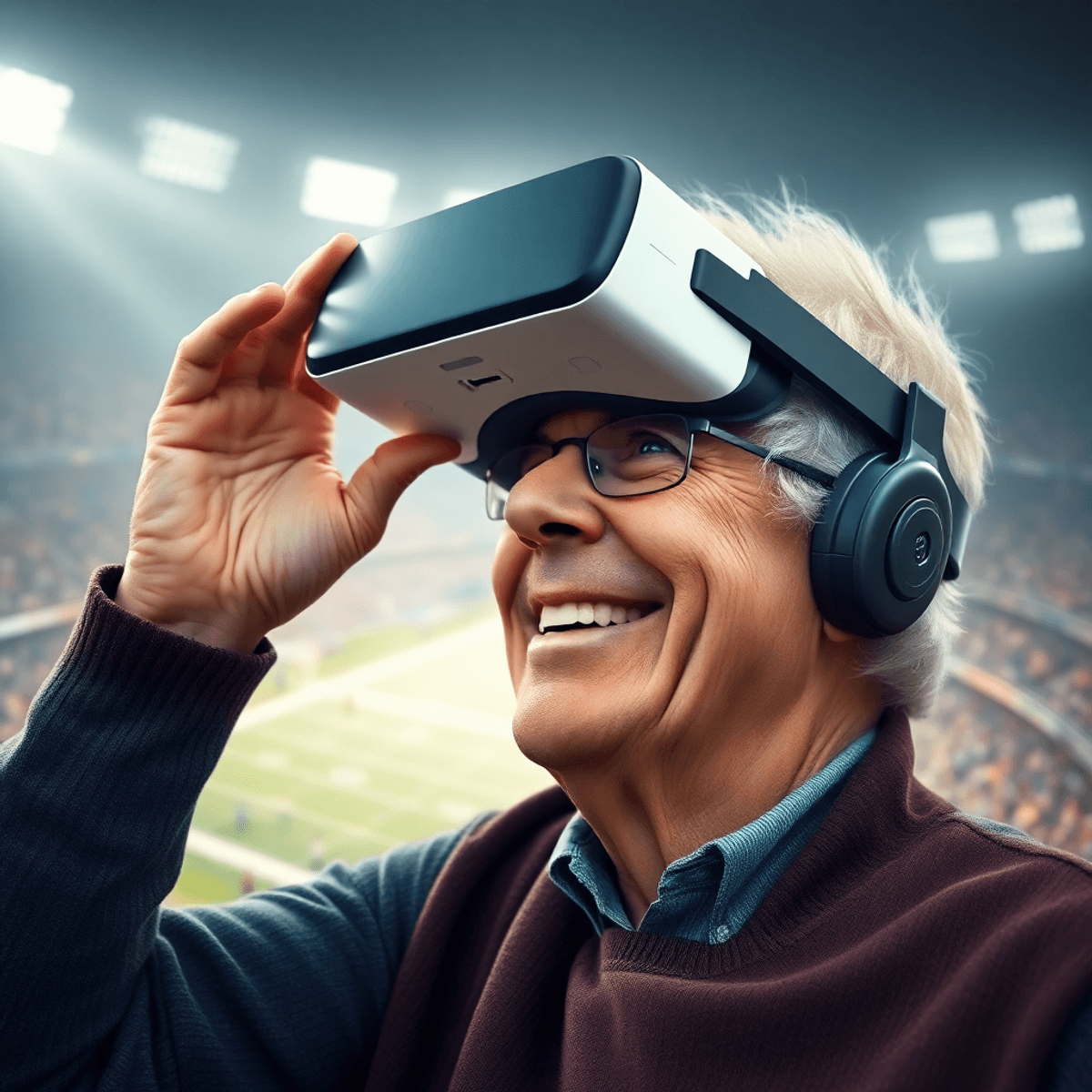
Virtual reality headsets are set to bring remote Football Memories sessions to rural Highland fans, including elderly and dementia sufferers. This innovative technology is transforming how these fans engage with their favorite sport.
Key aspects of this transformation include:
Football Memories Scotland is at the forefront of this initiative, leveraging VR to create meaningful connections. The impact is profound—bringing the thrill of the game to those who might otherwise be disconnected.
Football Memories Scotland is on a mission to connect older adults with their cherished football experiences. This initiative taps into the nostalgia of the beautiful game, creating a bridge between past and present for those who may feel isolated.
At the helm is Richard McBrearty, project director and curator at the Scottish Football Museum. His passion for football history drives the project’s vision. McBrearty understands that preserving memories can significantly impact mental well-being, especially for those grappling with dementia.
Since 2009, Football Memories Scotland has partnered with Alzheimer Scotland, focusing on enriching the lives of elderly individuals and those affected by dementia through shared football memories.
This collaboration not only honors the past but also nurtures community engagement, offering a supportive environment where laughter and connection thrive. The initiative serves as a reminder that even in challenging times, memories can bring solace and joy.
Virtual reality (VR) technology is changing the game when it comes to how fans connect with sports. It offers a digital space where users can fully immerse themselves in live events.
With VR headsets, fans are transported right into the action. Whether it’s witnessing a legendary goal or experiencing the tension of a penalty shootout, users feel the energy and excitement as if they were actually there.
VR not only allows fans to enjoy the game but also enables them to connect with one another. Through shared experiences in virtual reality, conversations and memories are sparked, creating deeper connections among fans.
VR sessions offer more than just entertainment value. They provide significant therapeutic benefits, especially for elderly individuals and dementia patients.
Engaging with cherished football memories has been shown to uplift spirits. The familiarity of these experiences brings comfort and allows users to relive joyful moments.
Interactive VR experiences present challenges that stimulate cognitive abilities, keeping participants mentally engaged. These sessions have shown promise in enhancing memory recall and cognitive function among individuals with dementia.
The combination of nostalgia and cutting-edge technology creates an environment where memories thrive. Football fans living in remote areas can now reconnect with their past, rediscovering the excitement of the sport once more. This innovative use of virtual reality demonstrates its potential not only in improving lives but also in fostering community engagement across different demographics.
Virtual reality is changing the way fans experience historic football matches. With VR headsets, users can go back in time and relive exciting moments from the Scottish Cup. This technology offers more than just watching a game; it provides an immersive adventure into the world of football history.
Key highlights from the Scottish Cup are now within reach for fans, especially those in remote areas. Imagine reliving:
These moments have been transformed into captivating VR experiences. Participants can feel the energy, the tension, and the thrill of each match.
Virtual reality headsets set to bring remote Football Memories sessions to rural Highland fans—including elderly and dementia sufferers—allow these supporters to connect with their past. Nostalgia and excitement blend seamlessly, fostering community bonds through shared memories. This innovative approach ensures that no one is left behind in celebrating their beloved sport.
Inverness stands out as a shining example of community involvement in the Football Memories Scotland initiative. This lively local football community has fully embraced the healing power of nostalgia, attracting participants from different age groups and backgrounds.
The recent session in Inverness marked a significant milestone. It recorded the largest group attendance since the program’s inception, with 77 attendees gathering to share memories and relive their football experiences.
Participants included not only elderly fans but also family members and caregivers, creating a supportive environment that fosters connection and understanding.
This remarkable turnout reflects the deep-rooted passion for football within the community. Local football clubs have played an instrumental role in promoting these sessions, reinforcing their commitment to inclusivity and support for individuals affected by dementia.
Inverness exemplifies how targeted community events can harness shared memories and revive the spirit of sport for those who cherish it most. The success of this initiative serves as a blueprint for other regions aiming to connect through the rich tapestry of football history.
Discovering local football community events can be a lifeline for dementia sufferers and their families. Numerous organizations leverage the sport to provide essential support:
Many clubs host inclusive events, encouraging participation from individuals with dementia. These gatherings promote social interaction, reducing feelings of isolation.
Groups such as Alzheimer Scotland collaborate with football initiatives to create tailored programs. They focus on nostalgia and familiar experiences, fostering connections among participants.
Sessions that combine football history and social activities help bridge gaps. Fans share memories, sparking conversations that enhance cognitive engagement.
These initiatives often feature training for staff and volunteers, ensuring a supportive environment. Understanding fans’ needs leads to a more enriching experience.
Football isn’t just a game. It’s a vehicle for connection and support within communities.
Virtual reality is reshaping the landscape of sports engagement.
The connection between technology and community support is undeniable. As virtual reality continues to evolve, it paves the way for deeper engagement among vulnerable populations. In this dynamic environment, football isn’t just a game; it becomes a lifeline, connecting fans to their beloved sport and each other in meaningful ways.


